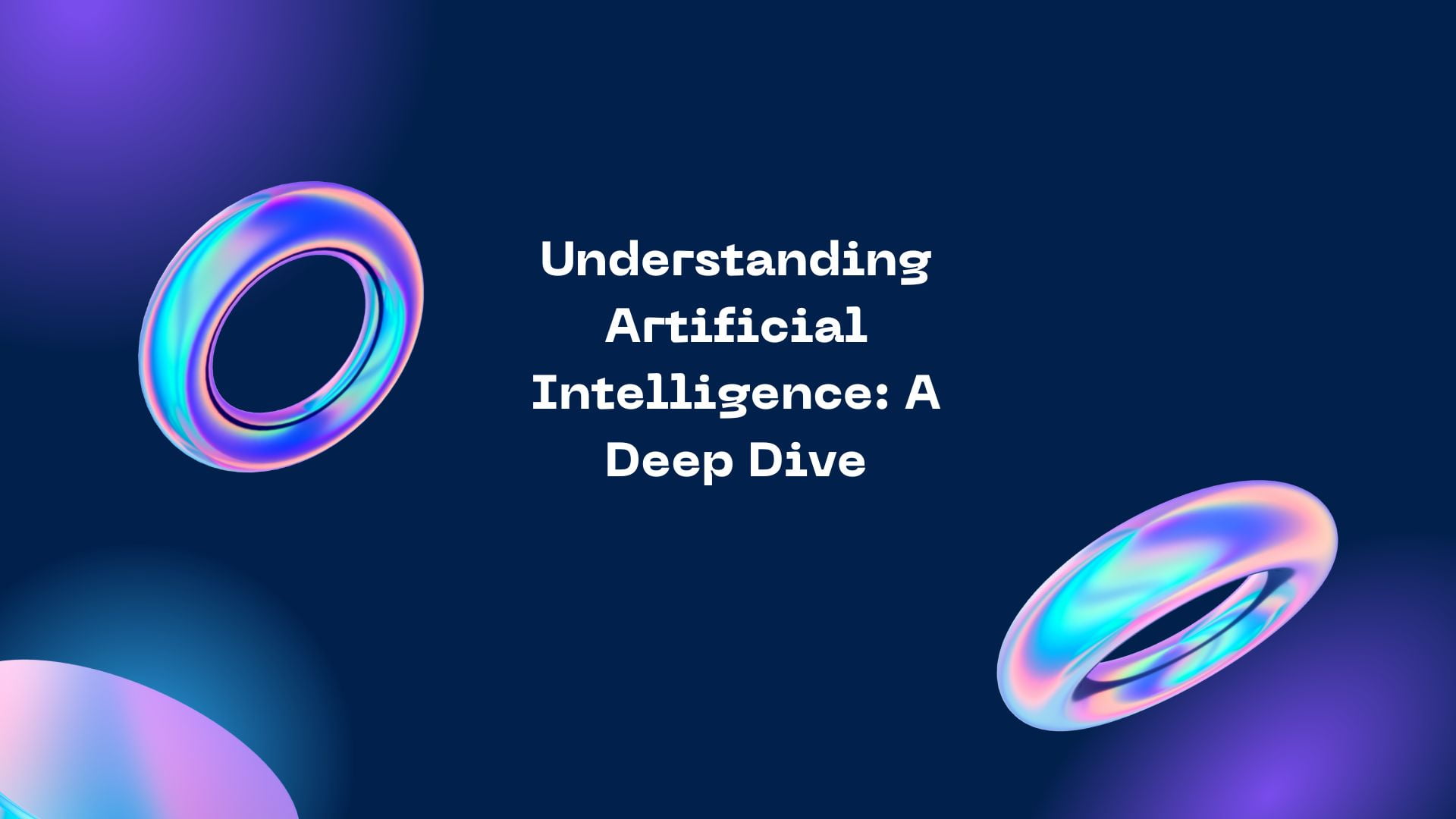Introduction

Artificial Intelligence (AI) has become one of the most transformative technologies of our time. It encompasses a wide range of applications, from virtual assistants to sophisticated machine learning algorithms that can predict consumer behavior. This blog will provide a comprehensive overview of AI, its history, applications, benefits, challenges, and future trends.
What is Artificial Intelligence?
Artificial Intelligence refers to the simulation of human intelligence in machines that are programmed to think like humans and mimic their actions. It involves the creation of algorithms that enable computers to perform tasks that typically require human intelligence, such as learning, reasoning, problem-solving, perception, and language understanding.
History of AI

The concept of AI dates back to ancient history, but the formal field of AI research was founded at a conference at Dartmouth College in 1956. Early pioneers like John McCarthy, Marvin Minsky, and Allen Newell laid the groundwork for AI development. The journey of AI has seen several phases, including the excitement of initial discoveries, periods of skepticism (often called “AI winters”), and the current era of resurgence driven by advancements in computing power and data availability.
Types of AI

1. Narrow AI (Weak AI)
Narrow AI is designed to perform a narrow task (e.g., facial recognition or internet searches) and is not capable of performing tasks outside of its specific scope.
2. General AI (Strong AI)
General AI refers to a system that can perform any intellectual task that a human can do. It remains theoretical and is a major goal of AI research.
3. Superintelligent AI
Superintelligent AI surpasses human intelligence in all aspects, including creativity, problem-solving, and emotional intelligence. This level of AI is purely speculative and raises significant ethical concerns.
Applications of AI

1. Healthcare
AI is revolutionizing healthcare with applications such as predictive analytics, personalized medicine, and robotic surgery. Machine learning algorithms can analyze large datasets to predict patient outcomes and recommend treatment plans.
2. Finance
AI helps in fraud detection, algorithmic trading, and personalized banking services. Financial institutions leverage AI to analyze market trends and improve decision-making processes.
3. Transportation
Self-driving cars, traffic management systems, and ride-sharing apps like Uber and Lyft use AI to enhance efficiency and safety in transportation.
4. Customer Service
AI-powered chatbots and virtual assistants (like Siri and Alexa) are improving customer service by providing instant responses and personalized experiences.
5. Manufacturing
In manufacturing, AI is used for predictive maintenance, quality control, and supply chain optimization, leading to increased productivity and reduced costs.
Benefits of AI

- Increased Efficiency: AI systems can process and analyze data much faster than humans, leading to significant time and cost savings.
- 24/7 Availability: AI systems can operate continuously without fatigue, providing consistent performance.
- Improved Decision-Making: AI algorithms can analyze vast amounts of data to provide insights and recommendations, enhancing decision-making processes.
- Personalization: AI enables highly personalized experiences in various sectors, from marketing to healthcare.
Challenges and Ethical Considerations
- Job Displacement: Automation powered by AI can lead to job losses in certain sectors, necessitating the need for workforce reskilling.
- Bias and Fairness: AI systems can perpetuate existing biases in data, leading to unfair and discriminatory outcomes.
- Privacy Concerns: The widespread use of AI involves massive data collection, raising significant privacy issues.
- Security Risks: AI systems can be vulnerable to cyber-attacks, posing risks to critical infrastructure and personal data.
Future of AI

The future of AI holds immense potential, with ongoing advancements in areas such as quantum computing, natural language processing, and cognitive AI. Researchers are working towards developing AI that can understand and interact with humans more naturally and ethically. The integration of AI with other emerging technologies like the Internet of Things (IoT) and blockchain will further expand its applications and impact.
Conclusion
Artificial Intelligence is reshaping the world as we know it. From improving healthcare outcomes to enhancing customer experiences, the potential of AI is vast. However, it also presents challenges that need to be addressed through thoughtful regulation and ethical considerations. As we continue to innovate, it is crucial to strike a balance between leveraging AI’s benefits and mitigating its risks to create a sustainable and equitable future.

[…] Artificial intelligence continues to be at the forefront of technological innovation. In 2024, AI is not just a buzzword; it’s a cornerstone of numerous industries, including healthcare, finance, and manufacturing. From predictive analytics to autonomous vehicles, AI-powered systems are enhancing efficiency, productivity, and decision-making processes like never before. With advancements in deep learning algorithms and neural networks, the capabilities of AI are expanding rapidly, opening new possibilities for human-machine collaboration and automation. […]
[…] through some artificial Intillegence related blogs from […]
[…] of the patterns explained in this article are useful technical indicators which can help you to understand how or why an asset’s price moved in a certain way […]